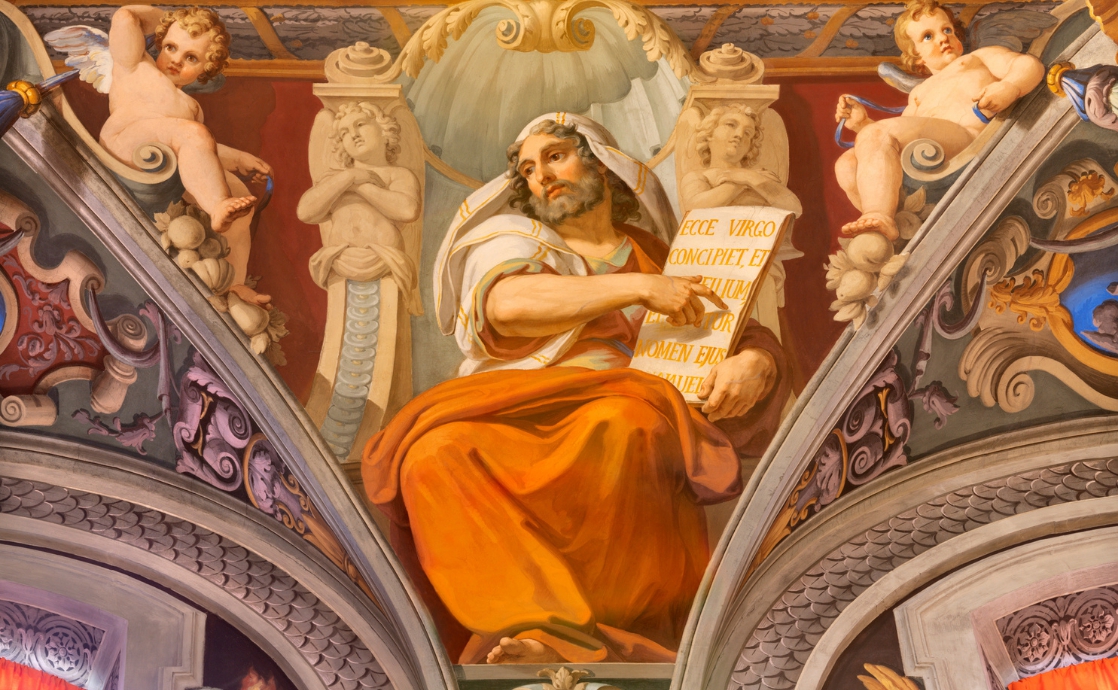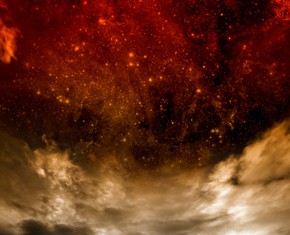The views expressed in our content reflect individual perspectives and do not represent the authoritative views of the Baha'i Faith.
The prophet Isaiah counseled and castigated the kings, priests, and people for their sins – and gave seemingly straightforward prophecies that included complex, deep theological perplexities.
Consider, for example, what may be Isaiah’s best-known prophecy: “For unto us a child is born” (Isaiah 9:6). That famed phrase introduces one of the most quoted passages from Isaiah, commemorated in George Frederick Handel’s oratorio masterpiece, Messiah.
Many Christians have traditionally believed that Jesus was that child – and that the prophecies associated with the child were fulfilled by him. Only recently in religious history, though, with the benefit of hindsight, did it become apparent that Isaiah 9:6‒7 would be primarily fulfilled by the Baha’i dispensation.
In verse 9 of the Book of Isaiah, his prophecy promised that an eventual future would dissipate the present gloom, because then God “… will honor the Galilee of the nations, by Way of the Sea, beyond the Jordan.” War will be no more, because “Every warrior’s boot used in battle and every garment rolled in blood will be destined for burning, will be fuel for the fire.”
How could this happen? Isaiah said:
For unto us a child is born, unto us a son is given: and the government shall be upon his shoulder: and his name shall be called Wonderful, Counsellor, The mighty God, The everlasting Father, The Prince of Peace.
Of the increase of his government and peace there shall be no end, upon the throne of David, and upon his kingdom, to order it, and to establish it with judgment and with justice from henceforth even forever. The zeal of the Lord of hosts will perform this.
This promise of universal and lasting peace brings us to the interesting concept of partial fulfillment and greater fulfillment of Biblical prophecy.
The verses of Isaiah 9:6–7 were partially fulfilled through Jesus, who was a descendant of David and sat on the spiritual throne of David. Abdu’l-Baha said in an address given in the United States in 1912:
He was seated upon the throne of David, but His sovereignty was neither Napoleonic sovereignty nor the vanishing dominion of a Pharaoh. The Christ Kingdom was everlasting, eternal in the heaven of the divine Will.
Importantly, Jesus denied any claim to temporal authority in John 18:36 when he said, “My kingdom is not of this world.” His name was not “the everlasting Father” – instead, he referred to himself as the Son. Rather than being known as “Counsellor,” Jesus was often called Rabbi, or teacher. Jesus made no claim to be the “Prince of Peace,” saying instead in Mathew 10:34, “Do not suppose that I have come to bring peace to the earth. I did not come to bring peace, but a sword.”
Jesus also never undertook the burden of government, but answered questions about the Roman government with the response, “Render therefore unto Caesar the things that are Caesar’s; and unto God the things that are God’s.”
Baha’u’llah represents a greater fulfillment of the above two verses for many reasons. Abdu’l-Baha referred to Isaiah 9:7 and the Lord of Hosts when he wrote about Baha’u’llah’s arrival at the prison in Akka:
When Baha’u’llah arrived at this prison in the Holy Land, discerning souls were awakened to the fact that the prophecies which God had voiced through the tongue of His Prophets two or three thousand years before had been realized and that His promises had been fulfilled, for He had revealed unto certain prophets and announced unto the Holy Land that the Lord of Hosts would be manifested therein.
RELATED: Prison for the Prophet in a Distant Land
Baha’u’llah wrote to Pope Pius IX, first touching upon the missions of John the Baptist and Jesus, and then focusing on these days of cleansing with the water of life at the hands of God’s loving providence. In that tablet, Baha’u’llah identified himself as the Father and the Comforter:
We sent forth him who was named John to baptize you with water, that your bodies might be cleansed for the appearance of the Messiah. He, in turn, purified you with the fire of love and the water of the spirit in anticipation of these Days whereon the All-Merciful hath purposed to cleanse you with the water of life at the hands of His loving providence. This is the Father foretold by Isaiah, and the Comforter concerning Whom the Spirit [Jesus] had covenanted with you. Open your eyes, O concourse of bishops, that ye may behold your Lord seated upon the Throne of might and glory.
In addition, Abdu’l-Baha referred to Baha’u’llah as the Prince of Peace when he wrote about the eventuality and inevitability of universal peace in the Baha’i era:
The Sun of Truth hath risen above the horizon of this world and cast down its bounty of guidance. Eternal grace is never interrupted, and a fruit of that everlasting grace is universal peace. Rest thou assured that in this era of the spirit, the Kingdom of Peace will raise up its tabernacle on the summits of the world, and the commandments of the Prince of Peace will so dominate the arteries and nerves of every people as to draw into His sheltering shade all the nations on earth.
Baha’u’llah’s mission – to bring peace and unity to the entire world – was prophesied by Isaiah 25 centuries before it began.
Eileen Maddocks is the author of the trilogy The Coming of the Glory: How the Hebrew Bible Reveals the Plan of God. Volume 1 was released in 2020. Volume 2 will be released in April 2022, and Volume 3 a year or two later. Her blogs and video presentations can be accessed on her website (eileenmaddocks.com).
















Comments
Sign in or create an account
Continue with Googleor